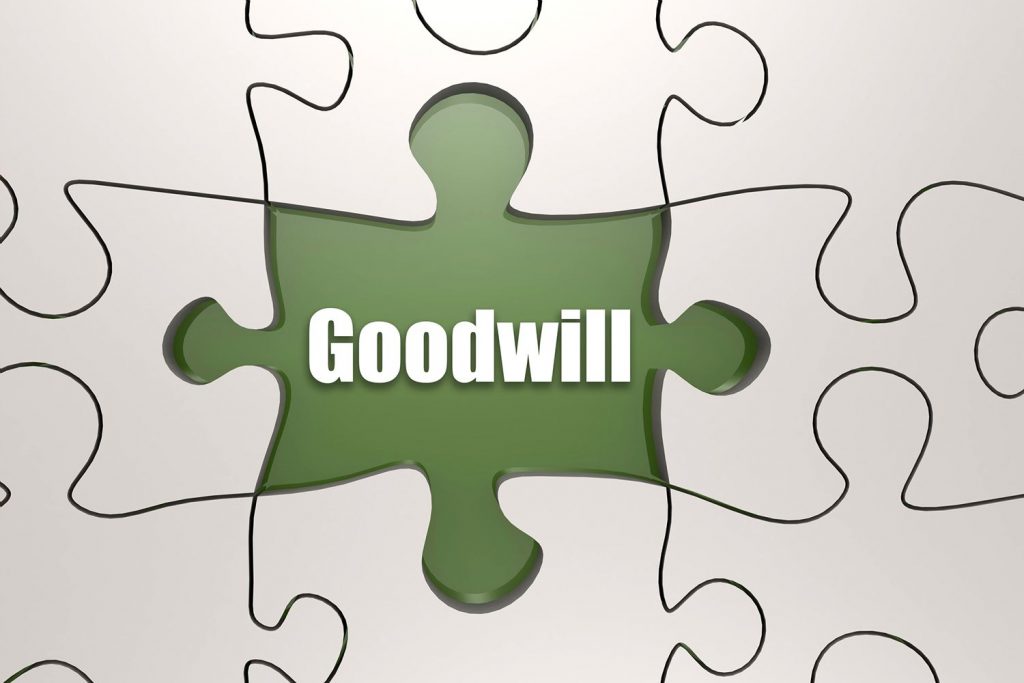
If you are thinking about buying a business, it is likely that you have heard the term “Goodwill” used often, but may be wondering what exactly it is and how it will impact your business purchase. When buying a business, you typically pay a set amount for the entire business, including all of its assets and liabilities. Goodwill is calculated as the value attributed to a business in excess of the fair market value (FMV) of the firm’s total assets and liabilities.
Here is an example of a simple business purchase:
You buy a business for $480,000. The assets included in the sale of the business are accounts receivable, inventory, land, and buildings. Additionally, the business has no debt.
The fair market value (FMV) of the net identifiable assets of the business is as follows:
Accounts receivable: $80,000
Inventory: $40,000
Land: $120,000
Building: $200,000
Total net identifiable assets: $440,000
You can determine the value of the goodwill by subtracting the total value of the net identifiable assets from the purchase price:
Purchase price: $480,000
Minus Net identifiable assets: ($440,000)
Amount assigned to goodwill: $40,000
In this scenario, the value of the business (as determined using an appropriate cash-flow based methodology) is greater than the value of all of the assets owned by the business. The goodwill implied in the purchase price of the business is calculated to be $40,000.
There are many aspects of a business that may affect goodwill. Some of these aspects of goodwill include:
- Brand names
- Strong customer lists
- Good customer relations
- Good employee relations
- Patents or proprietary technology
- General reputation
- Future sales projection
When buying a business, it is important to assess the goodwill of the business accurately to ensure you don’t overpay. Make sure to take into account the many factors that can affect goodwill when evaluating a business purchase.
Are you interested in buying a business? Download our free e-book on buying a business here.
